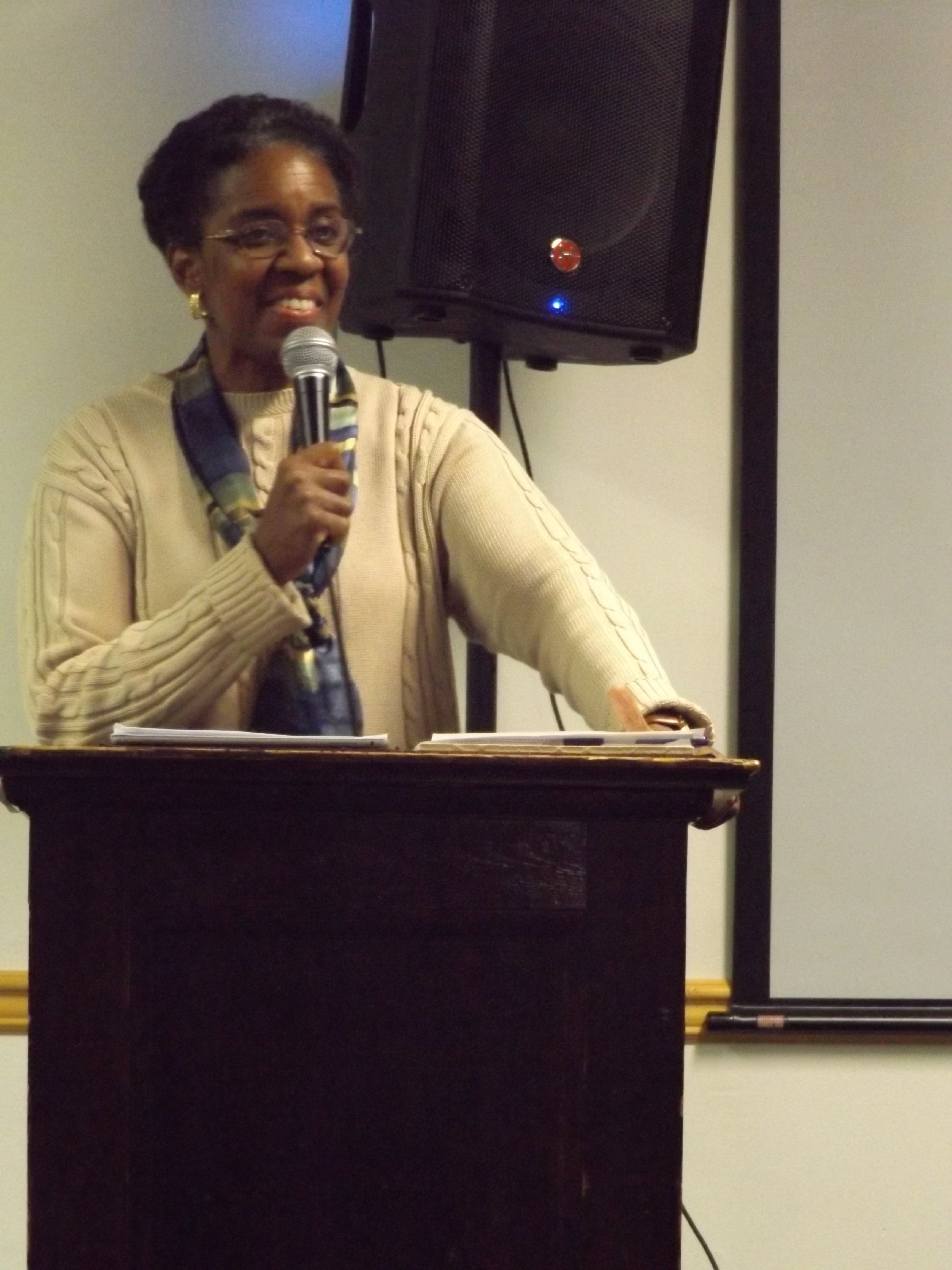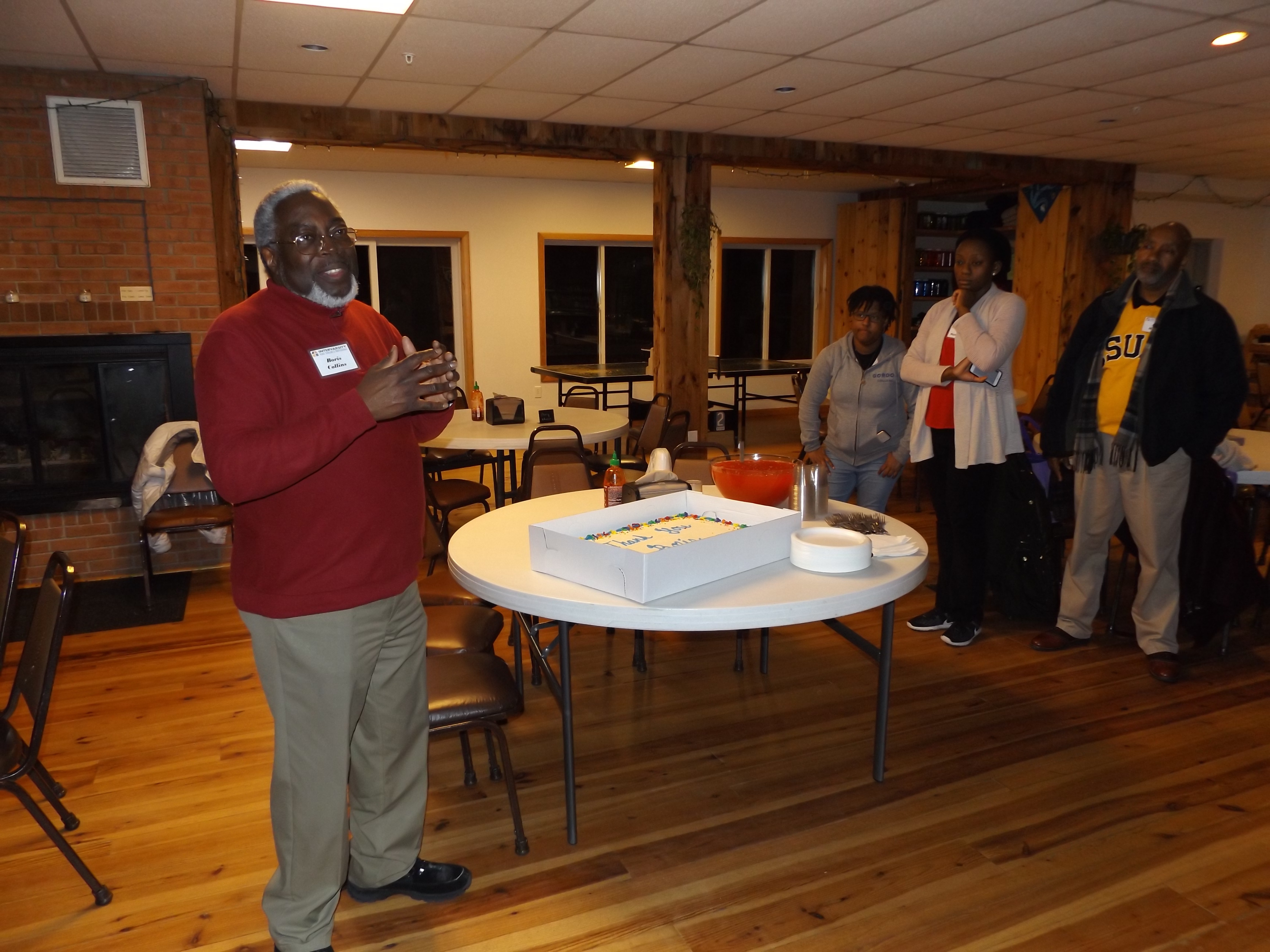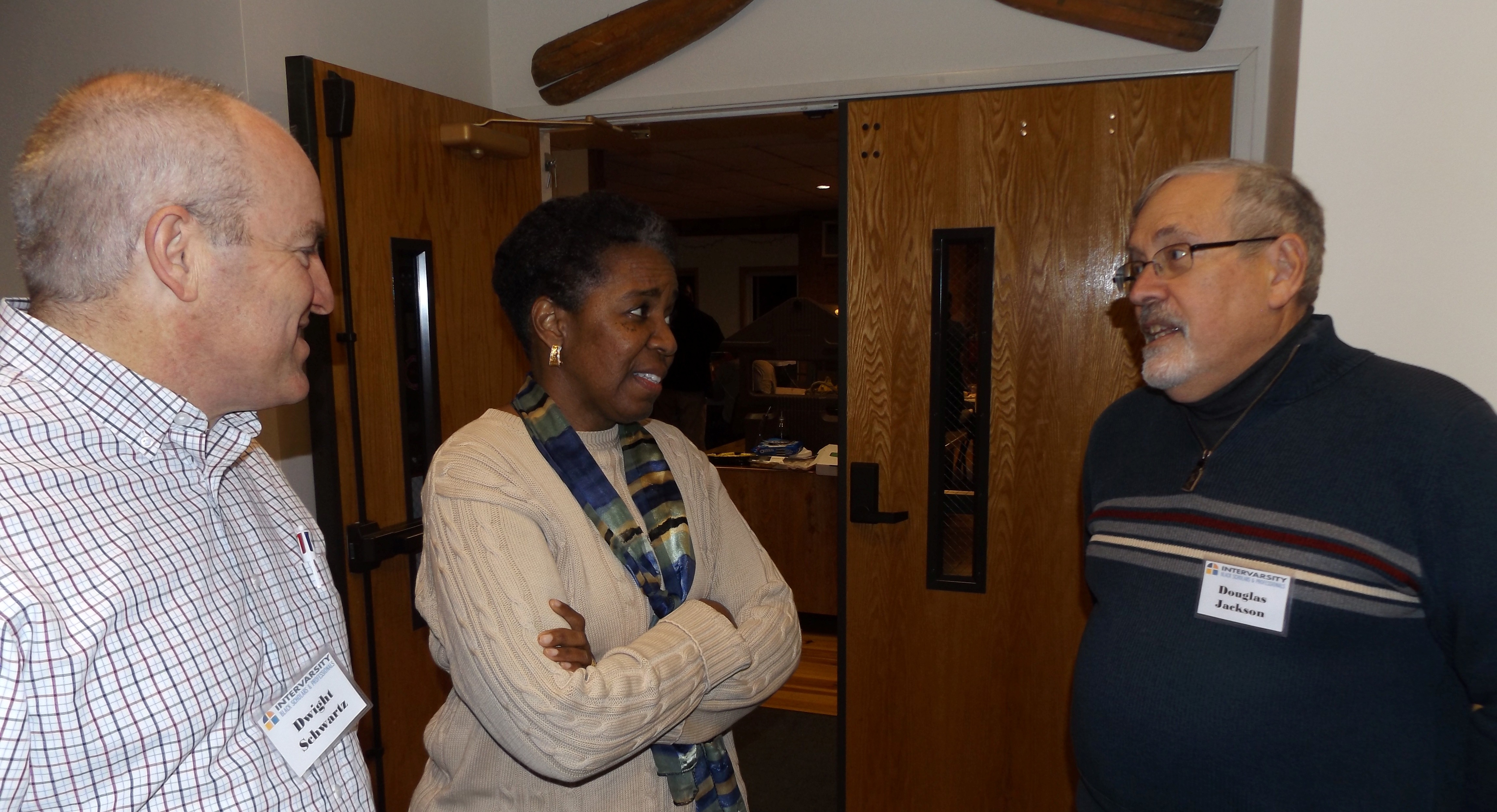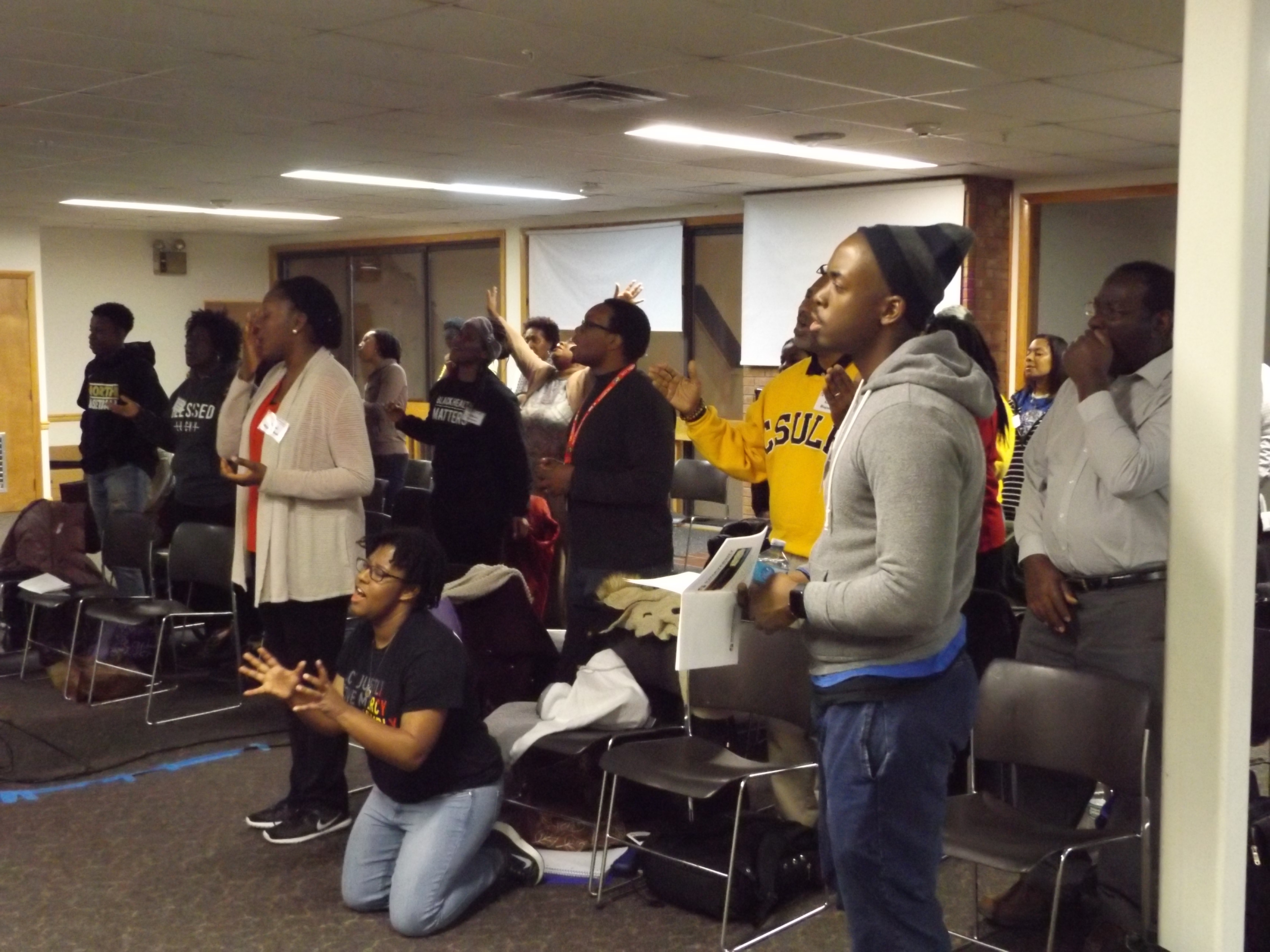Making worship a priority and realizing the centrality of prayer were two of the issues highlighted by Dr. Vanessa Quainoo, Associate Professor of Communication Studies, University of Rhode Island, Kingston. She served as keynote speaker for the seventh Black Scholars and Professionals Conference, held April 6 - 7, 2018. “Self-Care in Mind, Body, Soul and Spirit,” the conference theme, was based on Jesus’ teaching in Mark 12:29-31 about the greatest of all the commandments. Faculty, graduate students and professionals traveled 70 miles (in the snow!) outside Boston, Massachusetts to the conference site, InterVarsity’s Toah Nipi Retreat Center, in Rindge, New Hampshire.
Conference Goals
One goal of the conference was to emphasize the importance of self-care for faculty, graduate students and professionals of color, especially as they strive to maintain their Christian identity and succeed in their fields. Another goal of the conference was to help attendees to see that they can have healthy and safe lives and communities, despite the stresses of their current situations and the world around them.
Taking Care of Yourself in Every Season
 Dr. Quainoo emphasized that knowing your season of life is very important to self-care. She said lack of self-care shows in a lack of fruitfulness and pointed to how a tree bears fruit in its season. She said Jesus remarked that the children of Israel were like trees with leaves and no fruit. She said the key to fruitfulness is being cognizant of and operating in your season. Some are in a season of rest, others are in a season of cultivation, for still others it is a season of service and for others it may be a season of research.
Dr. Quainoo emphasized that knowing your season of life is very important to self-care. She said lack of self-care shows in a lack of fruitfulness and pointed to how a tree bears fruit in its season. She said Jesus remarked that the children of Israel were like trees with leaves and no fruit. She said the key to fruitfulness is being cognizant of and operating in your season. Some are in a season of rest, others are in a season of cultivation, for still others it is a season of service and for others it may be a season of research.
Realizing and addressing the daily trauma and stresses of black scholars and professionals and helping them to seek the help of God for victory was another conference objective. One of Dr. Quainoo’s messages addressed the issue of family, professional, societal and personal trauma. She stressed the importance of forgiveness and allowing the work of the Holy Spirit to bring us to the point of forgiveness in difficult situations, especially with emotional wounds. This message was followed by an extended time of prayer so that conferees could receive prayer for past wounds and current emotional hurts.
Prayer played a central part in the conference, both before and during the event.
For months, a team had prayed for the conference and we had onsite prayer warriors during the conference. The morning conference prayer time was filled to overflowing, requiring that we move to a larger room!
 In addition to Dr. Quainoo’s talks on Friday and Saturday, there was a time of celebration on Friday night. Pastor Boris Collins, who has been the conference director for many years, decided this would be his last year as director. On Friday night, he was surprised with a “retirement” party and InterVarsity staff, volunteers and others gave him words of praise for his faithful service. Food and fellowship were also a highlight of the party. As Pastor Collins' season of leadership comes to a close, we begin to pray for future conference leaders as well.
In addition to Dr. Quainoo’s talks on Friday and Saturday, there was a time of celebration on Friday night. Pastor Boris Collins, who has been the conference director for many years, decided this would be his last year as director. On Friday night, he was surprised with a “retirement” party and InterVarsity staff, volunteers and others gave him words of praise for his faithful service. Food and fellowship were also a highlight of the party. As Pastor Collins' season of leadership comes to a close, we begin to pray for future conference leaders as well.
Workshops
On Saturday afternoon, conferees had a number of workshop choices. One of them, “Minding and Mining Your Stories,” led by Trinity Graduate Student La Tonia Winston, focused on her dissertation studies about the stories of women in the Bible. Using the story of Ruth, she pointed to how God used the story of this woman who had fallen on hard times but who was destined to be the great grandmother of a king and in the genealogy of Jesus, as an example of how God can work in our lives, regardless of our circumstances. She encouraged all present to write their stories and see how God had been at work in their lives.
Another workshop, “Put Your Oxygen Mask on First, Self-Care for Servants” was geared toward men. Led by Fred Williams, Assistant Area Director for Graduate and Faculty Ministries in North and South Carolina and Virginia, and Jamal Collins, Technology Support Consultant at the MIT Sloan School of Management, the focus was on self-care as discipline, that which happens in the background and the need to be proactive, rather than reactive. The leaders covered areas of physical, spiritual, career, financial, mental and emotional self-care and stressed the need for men to be “straight with God,” to plan for the future and to pay attention to their emotions.

In his Fitness workshop, Joe Sumrell “did a wonderful job of describing his understanding of the value of physical fitness and its relationship/analogy to Christian discipleship,” according to Dwight Schwartz, GFM staff from Baltimore. “One thing that I found particularly helpful was his exposition of the basic concepts of static and dynamic balance, posture, flexibility, and efficiency as they related to physical activity,” Schwartz said.
Thoughts on the Conference
Conference attendees appreciated the following:
- Good quality speakers and workshops.
 A spirit of kindness and servant hood (individual(s) actually cleaned snow off participants' cars, anonymously).
A spirit of kindness and servant hood (individual(s) actually cleaned snow off participants' cars, anonymously).- Many reflected that they not only sensed the presence of the Holy Spirit, but took seriously the call to grow, change and be transformed.
- The Afrocentric feel of the conference.
- The way the praise and worship team ushered in the presence of God.
- The timeliness and importance of the topic of self-care!
Other aspects of the conference that were notable included:
- We had 50 people in attendance.
- We had great resource materials from African American speakers/authors.
Those present at the conference included professors and school teachers, as well as graduate students, scientists, those in the tech fields and InterVarsity staff, all of whom lead busy lives.
Ongoing prayer would be appreciated for all attendees as they face the continuous pressures of their lives and fight the tendency to neglect self-care for studies or demanding professions.